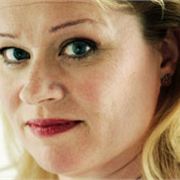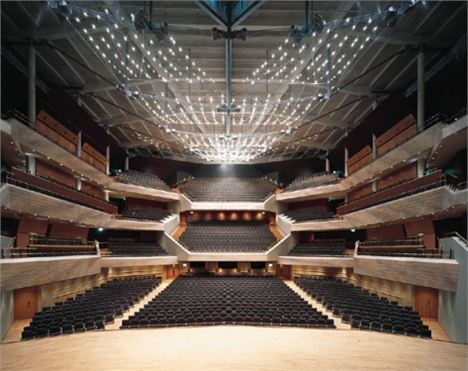AN EPIC musical journey came to a triumphant conclusion at the Bridgewater Hall with the final concert in the Strauss’s Voice festival.
In Storgård’s hands, this was an exhilarating masterclass in harnessing large orchestral forces.
As in the rest of the series spanning two months and encompassing all three main Manchester orchestras plus an impressive array of conductors and singers, the programme cannily layered the German composer’s ecstatic works for the human voice and orchestra alongside purely orchestral works requiring substantial forces.
Saving the best to the last? Not quite – I am still in awe of the Halle and BBC Philharmonic combining for the Alpine Symphony – but surely Swedish soprano Hillevi Martinpelto provided THE voice and interpretative skills of the whole season.
There have been occasions when the orchestral sound has threatened to overwhelm the solo female vocal chords. Not so here. Martinpleto’s control, range and sheer engagement in the words across six songs straddling the interval were exceptional.
It wasn’t a case of guest conductor John Storgårds reining in the BBC Phil. Martinpelto’s voice soared magnificently, in particular during the challenging Gesang der Apollopriesterin (Priestess of Apollo Song) and Frühlingsfeier (Spring Festivall). Contrast with the tender wonder in her voice in the contrasting Die Heiligen drei Könige aus Morgenland – basically a We Three Kings Of Orient Are with a better tune.
The Frühlingsfeier hails the day the composer first met his wife, Pauline, and indeed the abiding impact of Strauss’s Voice is that so much of his song output – whether using words by poets as sublime as Heine and Goethe or mere Romantic journeymen – makes up an extended uxorial rhapsody to the woman whose voice could cope with the works’ often tortuous demands.
 Hillevi MartinpeltoBack to that canny programming. Opening with Mahler’s first work for orchestra alone, Todtenfeier, and closing with Strauss’s own monumental Heldenleben (A Hero’s Life) is an obvious yoking of two self-obsessed orchestral pieces. But whereas the Mahler is a long-neglected curiosity, intended to stand on its own as a pessimistic symphonic poem confronting big issues such as Death and Nature but effectively a first draft for his more coherent Second Symphony, the Heldenleben is a masterpiece.
Hillevi MartinpeltoBack to that canny programming. Opening with Mahler’s first work for orchestra alone, Todtenfeier, and closing with Strauss’s own monumental Heldenleben (A Hero’s Life) is an obvious yoking of two self-obsessed orchestral pieces. But whereas the Mahler is a long-neglected curiosity, intended to stand on its own as a pessimistic symphonic poem confronting big issues such as Death and Nature but effectively a first draft for his more coherent Second Symphony, the Heldenleben is a masterpiece.
It is a complex work, far from Mahler’s self-absorption, with the composer setting himself up ironically as The Hero. Strauss wittily quotes from some 30 of his own works, including the 'joined at birth' Don Quixote, while crossing swords with music critics (each with their own hectoring instrumental personality), before returning from his musical battles to his beloved wife for redemption.
In Storgård’s hands, this was an exhilarating masterclass in harnessing large orchestral forces. From the awesome brass and percussion sections to the enraptured violin solo (the Wife’s theme, naturally) superbly played by guest leader Pieter Schoeman, it was a suitably heroic climax to one of Manchester music’s great recent success stories.
More from the Bridgewater Hall here.
Bridgewater Hall, Lower Mosley Street, M2 3WS. 0844 907 9000













